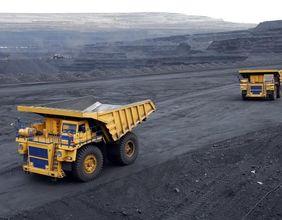A four-year-old boy who loved dinosaurs continues to inspire his determined mother's child road safety campaign nine years after he was fatally hit by a car on the NSW Central Coast.
Michelle McLaughlin's urgent message is that this festive season could be the most hazardous for young pedestrians in recent years as families flock to holiday spots following three years of COVID lockdowns, fires and floods.
Her son Tom was hit and killed on the first day of a family holiday at MacMasters Beach on January 6, 2014, after a car driver failed to see the small boy on the road verge.
Ms McLaughlin, an experienced nurse from Sydney, told AAP she knew straight away her son had suffered a catastrophic head injury.
Devastated by the loss of her "amazing little boy" she and husband David set up the Little Blue Dinosaur Foundation to campaign for improved child road safety.
The foundation has teamed up with the University of NSW to gather more data on child road deaths and devise measures to drive fatalities down.
Ms McLaughlin says the name and logo for her foundation were inspired by her son's drawings of blue dinosaurs with happy faces.
"He loved the colour blue and as most little boys do he loved dinosaurs.
"He was our pride and joy, a beautiful child on the outside but also on the inside a very caring little boy and a lovely brother and son."
Ms McLaughlin says Tom was was not doing anything silly but was in an unfamiliar holiday area, busy with cars.
She says young children are still learning about road risks and have slower reflexes and judgments to react to noises or moving vehicles.
"That's why our messaging is all central to 'hold my hand' up to the age of 10."
Ms McLaughlin's campaign has involved working with NSW Central Coast councils to install "Hold My Hand" signs at school gates and to get the message out to slow down when children are around.
She says after three years of COVID-impacted holidays and natural disasters families are freer to visit holiday towns that will undergo big jumps in population.
"So you have more cars, more people and more risk for crashes happening and people might be a little complacent with road safety enforcement with the young ones."
Road fatality figures show land transport crashes are a leading cause of death for Australian children aged one to 14 and between 2012 and 2021, 422 children aged under 15 died in crashes, with 28 per cent pedestrians.
"It's an absolute travesty that we've got this happening in this country and people are blissfully unaware of it," Ms McLaughlin says.
She doesn't want another family to go through the suffering and devastation of losing a child.
"My son didn't die for nothing. Even though he's passed away obviously, he's still doing great work through me and what I do.
"He is a great inspiration and a great little helper and it's a terrific legacy".
Ms McLaughlin says she hopes telling her son's story helps to modify people's behaviour to slow down and hold the hands of young children to save lives.
"I think Tom would be absolutely thrilled with that."
Emeritus Professor Ann Williamson, of the University of NSW's Transport and Road Safety Research Centre, says holidays are a risky time for young children.
"They're in places you don't expect kids to be. In holiday locations and at holiday times kids can be everywhere."
She says children, because they have been locked down, perhaps aren't as ready and aware of the hazards around roads and vehicles.
Prof Williamson says children do not understand risk and don't respond to what could happen when it comes to moving vehicles and crossing roads.
She says car parks are often "hideously designed for pedestrians and little children, you just don't see them".
Speed limits of 30km/h or lower in busy summer holiday spots only did part of the job when traffic should be slowed down with roundabouts and other road design measures, Prof Williamson told AAP.
"You should never be going 50 through holiday beach villages."
She says the number of fatal crashes involving children has not changed greatly during the past decade, with increases recorded in 2020 and 2021.
UNSW and the Blue Dinosaur Foundation have jointly received a government research grant to gather more data on child pedestrian road accidents and why they occur.
Prof Williamson says new strategies are needed to get child road deaths down.
"Let's try harder."





